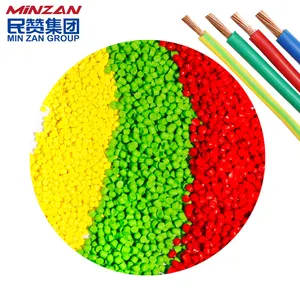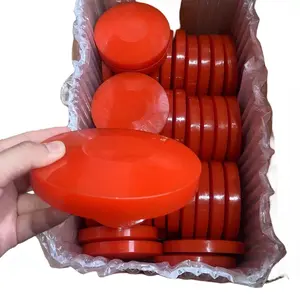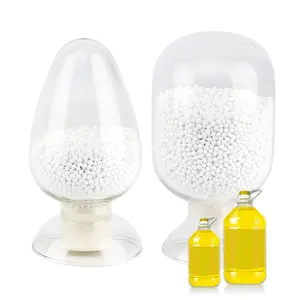What is Plastic Raw Material For Pets
Plastic raw materials for pets are the fundamental substances used in the manufacturing of various plastic products designed for pet care, such as bowls, toys, and containment systems. These materials are specifically chosen for their safety, durability, and suitability for interacting with animals. Pet owners, veterinarians, and pet care businesses are the primary consumers of these raw materials, which include resins, additives, colorants, and fillers.
The selection of plastic raw materials for pets is based on a thorough understanding of the specific requirements of pet products. For instance, considerations such as non-toxicity, resistance to chewing and scratching, and ease of cleaning are paramount when choosing materials for items that will come into close contact with pets. Additionally, many of these materials are designed to be robust to withstand the wear and tear that comes with pet ownership.
Plastic raw materials for pets must adhere to strict safety standards to ensure they do not pose health risks to animals or humans. These standards include regulations on chemical composition and mechanical properties. For instance, the materials used in the production of pet food containers must be food-grade to prevent contamination. Likewise, materials for toys and accessories must be non-toxic and durable to withstand the rigors of play.
Types of Plastic Raw Material for Pets
In the realm of plastic raw materials used for pets, there is a vast array of options each suited for different applications. Here's a closer look:
-
Polyethylene (PE) and Polypropylene (PP): These are two of the most common types of plastic raw materials used for pet products. They are known for their durability and are often used in items like bottles, food containers, and packaging due to their resistance to moisture and varying levels of heat.
-
Polystyrene (PS): Often utilized for pet food packaging, PS is also found in toys, beds, and even protective gear. Its versatility lies in its ability to be recycled into new products like foam mats or as fillings for pet cushions.
-
Polyethylene Terephthalate (PET): This type of plastic raw material is commonly used in the production of pet bottles and food containers. Its versatility makes it suitable for a wide range of applications from food packaging to pet product packaging.
-
Polyvinyl Chloride (PVC): PVC is known for its flexibility and is often used in products like pet doors or protective gear because of its resistance to wear and tear.
-
Acrylonitrile Butadiene Styrene (ABS): ABS combines toughness with rigidity and is frequently used in various pet products such as harnesses or as components in more complex items like pet grooming tools.
How to choose Plastic Raw Material For Pets
Choosing the right plastic raw material for pet products involves considering factors such as the intended use case, performance requirements, and safety standards. When businesses purchase these materials for manufacturing purposes or resale within the pet industry, it's essential to understand the specific needs of different consumer segments or product categories.
For instance, if a company is producing toys or equipment intended for long-term use outdoors, it might prioritize materials that are durable and UV-resistant like high-density polyethylene (HDPE) or polypropylene (PP). On the other hand, items designed for chewing might benefit from materials that have high tensile strength and appropriate flexibility such as thermoplastic rubber (TPR).
The grade or quality of the material is another critical consideration; it should align with industry standards and regulations that ensure safety and performance. For businesses focused on eco-friendly practices, opting for materials that are recyclable or biodegradable can be an important selling point.
Lastly, color plays a role not just in aesthetic presentation but also in product safety. Non-toxic dyes should be chosen to prevent any harm that might come from pets chewing on or ingesting the products.
About Plastic Raw Material For Pets on Alibaba.com
For businesses seeking a dependable source of plastic raw materials for pets, Alibaba.com stands out as an exceptional global marketplace. With an extensive network of suppliers offering a wide array of options, buyers can find the specific types of plastics they need for their operations. Whether it's PE for manufacturing dog toys or PP for creating cat litter boxes, Alibaba.com facilitates access to a diverse selection of materials suitable for any pet-related application.
The platform's commitment to enabling seamless trade across borders is evident through features such as mobile-friendly purchasing and multilingual communication support. This focus on user experience ensures that even small and medium-sized businesses can confidently source materials from around the world without encountering unnecessary obstacles.
Moreover, Alibaba.com offers Trade Assurance—a service designed to protect buyers' payments until delivery is confirmed—thereby reinforcing trust in transactions conducted on the platform. By leveraging this comprehensive range of products coupled with robust supplier verification processes, businesses can streamline their procurement process while upholding high standards of quality and reliability when it comes to sourcing plastic raw materials for pets.
Common FAQs for Plastic Raw Material For Pets
What types of plastic raw materials are commonly used for pet products?
Common plastics used in pet products include polyethylene (PE), polypropylene (PP), and polystyrene (PS), each offering different benefits like durability, flexibility, and safety. Additionally, materials like polyethylene terephthalate (PET) are used for their clarity and chemical resistance.
How do I determine the right type of plastic raw material for my product?
The choice of plastic material depends on the product's end-use, desired properties such as strength and flexibility, exposure to environmental factors, and any specific industry certifications or standards that must be met. Consulting with suppliers can help identify the most appropriate material for your application.
What are the considerations when choosing a plastic raw material for food contact products?
When selecting a plastic raw material for food contact products, it is crucial to ensure that the material is non-toxic and does not contain harmful chemicals. Materials should comply with food safety regulations and be safe for the intended use.
Can plastic raw material be recycled?
Many plastics can be recycled; however, the ability to recycle a specific plastic depends on its resin type and other additives. It is important to verify with local recycling facilities about their recycling processes for plastics.
Are there eco-friendly plastic alternatives available for pets?
Yes, there are eco-friendly plastic alternatives made from biodegradable or recyclable materials. These options are becoming increasingly available as businesses and consumers focus on sustainability in their purchasing decisions.
What is the difference between virgin and recycled plastic raw materials?
Virgin plastics are derived from new or unused resin, while recycled plastics are made from post-consumer or industrial waste. Virgin plastics typically offer better performance and higher quality but at a higher cost compared to recycled plastics.
How does the color of plastic raw material affect my product?
The color of plastic raw material can significantly influence the aesthetic appeal of your product. When choosing a color, consider the product's end-use and whether the plastic will be exposed to elements that could cause the color to fade over time.
Can I get custom plastic raw materials for my business's products?
Many suppliers on Alibaba.com offer customization services for plastic raw materials. Customization can include specific color formulations, material blends, or unique packaging tailored to your brand's requirements.
What should I know about the safety certifications required for pet product manufacturing?
Safety certifications may vary depending on the type of pet product being manufactured. It is essential to ensure that all products comply with relevant industry standards and regulations to guarantee consumer safety.
How do I ensure that the plastic raw material I choose is reliable and consistent?
When sourcing from Alibaba.com, you can review supplier profiles, customer feedback, and inquire about their quality assurance processes directly. Utilizing services like Trade Assurance can also provide additional protection for your transactions.
Is it possible to obtain samples of plastic raw materials before placing a bulk order?
Obtaining samples before placing a bulk order is typically standard practice and is recommended to evaluate the material's suitability for your application. It allows you to test the material firsthand and ensure it meets your requirements.
How does Trade Assurance benefit my purchase of plastic raw materials?
Trade Assurance is a service provided by Alibaba.com that helps protect your orders from payment to delivery. It ensures that your transactions are secure and that you receive the agreed-upon quality of products.
Can I use a standard plastic raw material for my product or should I choose a specialty grade?
Choosing between standard and specialty-grade plastic depends on your product's requirements. Standard grades may be sufficient for general use, while specialty grades should be considered if your product requires specific properties like high-temperature resistance or food safety compliance.
Are there any industry-specific standards I should be aware of when purchasing plastic raw materials?
Yes, certain industries have industry-specific standards and regulations that dictate the use of particular types of plastic raw materials. It's important to be aware of these if your products fall within those industries.
































 浙公网安备 33010002000092号
浙公网安备 33010002000092号 浙B2-20120091-4
浙B2-20120091-4